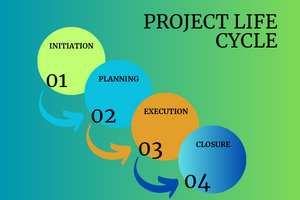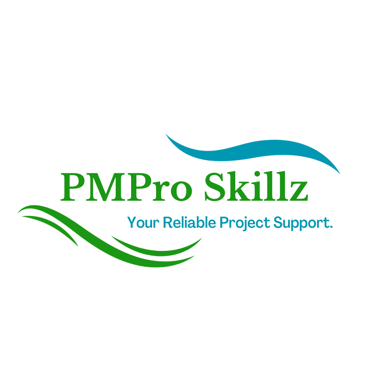Project Management Made Easy: Plan the Big Events in Life with Simple Techniques.
Life is full of big moments - from dream vacations to home renovations and everything in between. Successfully planning for these important events requires some project management skills to keep things on track. But project management doesn't have to be complicated! This article outlines easy PM techniques tailored for personal projects. Learn simple steps for defining your goals, mapping out tasks, estimating timelines, allocating resources, tracking progress, and more. With these practical tips, you can bring organization and efficiency to planning your next big endeavor.
Iyanna Trimmingha
8/23/20234 min read


In our daily lives, we all engage in personal and home projects, whether it's planning a vacation, renovating a living space, or pursuing a hobby. What many people might not realize is that successfully managing these projects can be greatly enhanced by applying some basic project management principles. While project management might sound like a corporate buzzword, it's actually a practical and valuable approach that can make a significant difference in the outcome of your personal endeavors. In this article, we will explore the fundamental aspects of project management and demonstrate how these principles can benefit your personal and home projects.
Demystifying Project Management
At its core, project management is the art of planning, organizing, and controlling resources to achieve specific goals. These skills are essential whether you're running a multinational corporation or simply sprucing up your backyard. You might be surprised to learn that you already possess a wealth of project management skills, and we'll show you how to harness them effectively for your personal projects.
What Exactly is Project Management?
Project management is the systematic application of knowledge, skills, tools, and techniques to meet the unique requirements of a project. In simpler terms, it involves:
Setting clear project goals and deliverables.
Creating a detailed plan, including tasks, schedules, and resource allocation.
Executing the plan by doing the necessary work.
Continuously monitoring progress and adjusting as needed.
Completing the project and evaluating the outcomes.
Sounds simple, doesn’t it? It's like having a roadmap that guides you through the journey of your project, ensuring that you reach your desired destination.
The Project Life Cycle


Project management is organized into four key phases that collectively form the project life cycle:
1. Initiation: In this phase, you define the project's objectives, scope, and stakeholders. It's all about understanding why the project is needed and what you expect to achieve.
2. Planning: The planning phase is where you map out how the project will be executed. This involves identifying tasks, estimating time requirements, allocating resources and budgets, and creating a schedule.
3. Execution: Here, you roll up your sleeves and put the plan into action. Team members take on their roles and work towards achieving the project's objectives. Throughout the project, you keep a watchful eye on its progress and performance. This includes status reports, change control, risk monitoring, and ensuring that the project remains aligned with its objectives.
4. Closure: The final phase involves wrapping up all project activities. This includes conducting final reviews, obtaining necessary signoffs, documenting the project, and celebrating your accomplishments.
These structured phases provide you with control over your project, from its inception to completion, and many project management tools and techniques align with these processes.
The Power of Project Management
Project management offers a multitude of benefits that can significantly enhance your personal and home projects, such as:
Enhanced Efficiency: Project management helps you plan logical, achievable steps, ensuring optimal resource utilization.
Improved Coordination: It fosters collaboration and effective communication among team members.
Greater Visibility: Through project management, all stakeholders are kept informed about project status and any potential issues.
Informed Decision Making: Project management provides valuable insights for making informed, data-driven decisions and mitigating risks.
Accountability: Clearly defined roles and responsibilities ensure that everyone knows what's expected of them.
Enhanced Quality: By catching issues early, project management techniques help you maintain quality and meet requirements.
Risk Reduction: Project management identifies uncertainties and develops contingency plans to minimize disruptions.
Goal Achievement: It keeps your projects aligned with your objectives, ensuring that you achieve your desired outcomes efficiently.
Applying Project Management to Personal and Home Projects


Practical Tips for Success
Now that you understand the principles and benefits of project management, here's how you can apply them to your personal and home projects:
Define Clear Objectives: Start by clearly defining your project's goals and outcomes. This will give you a precise target to aim for.
Scope Your Work: Identify all the tasks and activities required to achieve your project's objectives.
Create a Project Plan: Break down the work into manageable tasks, estimate how long each will take, determine dependencies, allocate resources, and build a project schedule.
Manage Resources and Budgets: Figure out what and who you need, track costs, and adjust plans to stay within your budget.
Regularly Check Progress: Set milestones and keep a close eye on your project's progress. Are tasks progressing as planned? Measure your achievements against your initial plan.
Adapt and Course Correct: When issues arise, manage risks, and make necessary adjustments to get back on track. Utilize the contingencies you've built into your plans.
Communication is Key: Keep team members and stakeholders informed about progress and any issues that arise. Effective communication is crucial for success.
Stay Aligned with Goals: Ensure that your day-to-day work aligns with your project's objectives. Don't lose sight of the bigger picture.
Celebrate Milestones: Take the time to recognize important achievements and celebrate your successes along the way.
Post-Project Review: After completion, evaluate the outcomes compared to your goals. Identify lessons learned and areas for improvement in future projects.


Applying project management fundamentals to your personal and home endeavors can make a world of difference. By taking a systematic approach to planning, executing, monitoring, and controlling your projects, you empower yourself to achieve your goals efficiently and effectively. Though project management originated in the corporate environment, its principles are versatile and valuable for all projects big and small. Leverage project management tools like activity scheduling, budgeting, resource planning, and consistent progress tracking to optimize how you manage your personal projects. Stay focused on your objectives, adapt when issues arise, and keep stakeholders looped in. With a project management mindset, you’ll find yourself successfully completing projects with less stress and more satisfaction. The next time you plan a major personal project, remember to tap into proven project management practices. You’ll be amazed at what a difference it makes in realizing your vision successfully!

